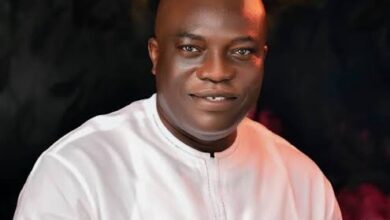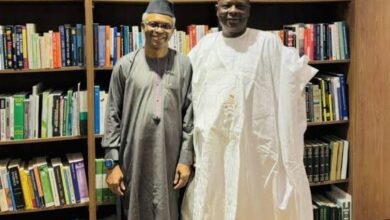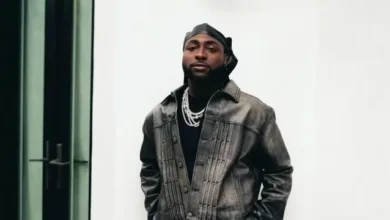The Sanwo-Ogun Twitter Debacle, A Test of Leadership and Free Speech By Shola Adebowale

The recent controversy surrounding Lagos State Governor Babajide Sanwo-Olu blocking Festus Ogun , a critic on Twitter has sparked a heated debate about leadership, free speech, and democracy. Similarly, this incident bears some resemblance to US President Donald Trump’s Twitter feuds, which raised concerns about his fitness for office. Trump’s online activities have been scrutinized, with many judging his reactions as impulsive and divisive. For instance, when Twitter labeled his tweets as “potentially misleading” or “unsubstantiated,” Trump responded with accusations of bias and threats to shut down social media companies. The tweets in question claimed that mail-in voting would lead to widespread voter fraud and a ‘Rigged Election’, despite a lack of evidence to support these claims. Twitter’s label included a link to a fact-checking notice, which cited reporting from reputable sources such as CNN and the Washington Post.These reactions have raised questions about his judgment and ability to handle high-pressure situations.
In fact, Trump’s Twitter feuds have laid a precedence for how leaders can be judged by their online activities. His tweets about nuclear codes, war, and peace, for instance , were deemed “disturbing” and raised questions about his temperament. Similarly, his retweets of conspiracy theories and inflammatory comments have sparked concerns about his commitment to fact-based governance. By extension, in a similar vein, Governor Sanwo-Olu’s decision to block a critic on Twitter raises questions about his own commitment to free speech and democratic values .
In today’s digital age, leaders’ online activities are under intense scrutiny, and their reactions can have significant consequences. Therefore, it is crucial for leaders to exercise emotional control, as their responses can impact not only their reputation but also the well-being of their citizens. Emotional intelligence plays a vital role in navigating the complexities of social media, where a single misstep can escalate into a full-blown crisis. By maintaining a level head and responding thoughtfully, leaders can build trust and credibility with their audience.
Therefore, the Sanwo-Ogun Twitter debacle serves as a test of leadership, highlighting the importance of emotional control, accountability, and free speech in democratic societies. As leaders navigate the complexities of social media, they must maintain a level head and respect the rights of their citizens to express themselves freely.
In the first place, it is clear that leaders are expected to maintain a level of emotional control, even in the face of provocation. President Trump’s tweets for instance , often cited as being impulsive and divisive, have been criticized for undermining his credibility and stability as a leader. Hillary Clinton, in particular, highlighted Trump’s behavior on Twitter as a concern, stating that his tweets about nuclear codes, war, and peace were “disturbing” and raised questions about his judgment.
In fact, it is on record that during a nation wide publicised national debate, Clinton heavily used Trump’s Twitter behavior to question his fitness for office, pointing out that his tweets were often erratic and impulsive. She criticized his tweets about other world leaders, such as Kim Jong-Un, and his attacks on his own officials, like Secretary of State Rex Tillerson. This critique highlights the fact that in the modern era, leaders’ activities or behaviors can be judged by their online actions. Leaders in this Millenium age of the new media, must therefore be aware that their social interactions and demeanor, both online and offline, have significant consequences.
For emphasis, the controversy surrounding Lagos State Governor Babajide Sanwo-Olu blocking a critic on Twitter (now X) has sparked a heated debate about leadership, free speech, and democracy. The incident began in October 2020, when Festus Ogun, a social critic and lawyer, demanded accountability for the massacre that occurred during the #EndSARS protests. In 2021, Governor Sanwo-Olu blocked Ogun on Twitter after he posted critical comments. Festus Ogun, a human rights lawyer, was therefore blocked by Governor Babajide Sanwo-Olu on Twitter (now X) in 2021 after posting criticisms and demanding accountability regarding the October 2020 #EndSARS massacre. The block was part of a larger controversy surrounding the governor’s handling of the protests and the subsequent lawsuit filed by Ogun.
In other words, the blocking has now led to a lawsuit filed by Ogun against the governor at the Federal High Court in Lagos on August 29, 2025. Ogun is seeking to be unblocked and for the governor to apologize. Reports about the lawsuit emerged on August 30, 2025, with Ogun stating that he had gone through “mental stress and trauma” due to being blocked, but chose not to seek damages.
The lawsuit filed by Festus Ogun against Governor Babajide Sanwo-Olu seeks several key demands. Firstly, it seeks a declaration that the block is unlawful and unconstitutional. Additionally, the lawsuit requests an order to compel Sanwo-Olu to unblock Ogun. Furthermore, it demands a public apology from the governor for his actions. Most notably, the lawsuit seeks a perpetual injunction restraining the governor from blocking critical citizens on social media, which would set a significant precedent for online interactions between public officials and citizens.
In modern democratic societies, free speech is a fundamental aspect, allowing citizens to express their opinions and hold their leaders accountable. In fact, the Nigeria Civic Space Protection Alliance has severally warned against suppressing speech freedom, emphasizing that such actions pose a serious threat to the nation’s democracy. When a leader blocks someone for making a divergent comment on a platform like Twitter, it can be seen as potentially suppressing dissenting opinions or stifling free speech. This behavior may be inconsistent with democratic values or principles of open discussion. Leaders are therefore, expected to handle diverse perspectives and criticism with tolerance, rather than resorting to blocking or silencing others. Furthermore, such actions can be perceived as an abuse of power, undermining the leader’s accountability to their citizens.
The importance of accountability cannot be overstated. Leaders must be answerable to their citizens, and their actions must be transparent and justifiable. When leaders suppress dissenting voices, they undermine accountability and create an environment where they can act with impunity. There is no iota of doubts, that accountability ensures that leaders prioritize the needs and interests of their citizens, promoting transparency, trust, and good governance.In the US, a country often looked to for inspiration on democratic best practices by Nigerians, the Supreme Court’s ruling on public officials blocking critics on social media has set a significant precedent. The court’s test for determining when a public official’s social media activity is considered ‘public’ versus ‘private’ could inform similar cases in Nigeria, such as the lawsuit against Governor Babajide Sanwo-Olu for blocking critic Festus Ogun on X. This ruling emphasizes the importance of accountability and transparency in governance, even in the digital age.
In fact, accountable leaders are more likely to make informed decisions, be transparent, and respond to the needs and concerns of their citizens. Dissenting voices play a crucial role in promoting accountability, providing an alternative perspective, challenging the status quo, and helping to ensure that leaders are held accountable for their actions, to maintain a high level of checks and balances that every democracy requires to thrive.
In this regards, in recent times, unlike before ,the commitment to accountability and democratic values as exemplified by Nigerian President Bola Tinubu, has been highly praised by the UN and US for defending democracy and promoting stability in the region. By promoting stability and defending democracy, President Tinubu has been acclaimed to have created an environment where citizens can express themselves freely and hold their leaders accountable. This approach serves as a model for all other political leaders in the country, highlighting the importance of accountability and transparency in governance.
Undoubtedly, the Sanwo-Ogun debacle serves as a test of leadership, highlighting the importance of emotional control, accountability, and free speech in democratic societies, most especially in the age of the social media. Leaders must therefore learn and learn very fast to navigate the complexities of social media while maintaining a level head and respecting the rights of their citizens.
Although this is a novel case filed by Nigerian lawyer Festus Ogun in Lagos State against Governor Babajide Sanwo-Olu, because the Governor blocked him on his X (formerly Twitter), as pointed out by a legal luminary, Chief Okoi Obono-Obla in his op-ed, “Social Media and Public Office: A Novel Legal Challenge in Nigeria,” where he further noted that “…the case is unprecedented within the Nigerian legal system, where no superior court of record-such as the Court of Appeal or the Supreme Court of Nigeria-has laid down a precedent for a lower court, like the High Court of Lagos State, to rely upon in adjudicating such a matter.” Nonetheless, the case may spark a move for new laws governing social media, apart from highlighting the emotional incompetence of many leaders in public forums when confronted with dissenting opinions or perspectives in a less controlled environments, a rare opportunity offered to average Nigerian citizens today by social media to cross examine their leaders.
As the debate surrounding public officials’ social media activities continues with this peculiar case, different stakeholders are likely to hold varying views. Public officials may argue that blocking abusive or harassing users is necessary to maintain a safe online environment, given the prevalence of cyberbullying in Nigeria. In contrast, civil liberties groups contend that blocking critics on social media constitutes censorship, undermining free speech and democratic accountability. They advocate for transparency and accountability in public officials’ online interactions. The courts will play a pivotal role in determining the boundaries of public officials’ social media activities, potentially drawing on best practices from advanced democracies like the United States.
The post The Sanwo-Ogun Twitter Debacle, A Test of Leadership and Free Speech <p><span style='color:#808080;font-size:18px;'><i>By Shola Adebowale</i></span></p> appeared first on Diaspora Digital Media DDM.





